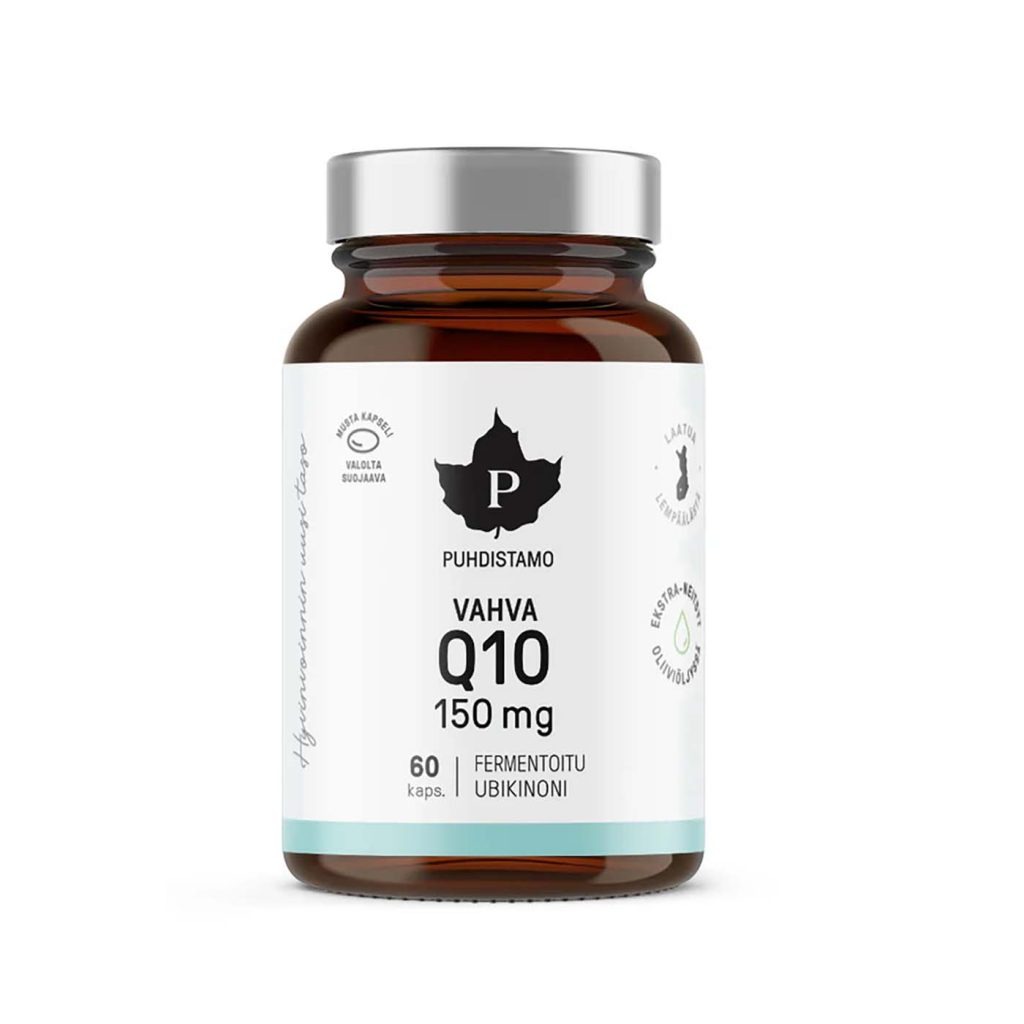Coenzyme Q10 Ubiquinone 150 mg
Strong ubiquinone Q10 in extra virgin olive oil, in a light-protected capsule.
One Puhdistamo Vahva Q10 soft gelatin capsule contains 150 mg of natural fermented ubiquinone and 15 mg of vitamin C, which promotes normal energy metabolism and protects cells from oxidative stress.
Q10 is very sensitive to light, which is why the shell of the capsule has been colored opaque with the help of natural medicinal charcoal. Q10 is completely dissolved in high-quality extra virgin olive oil inside the capsule, which supports absorption.
Coenzyme Q₁₀, or ubiquinone, is a naturally occurring biochemical cofactor and antioxidant produced by the human body.
It can also be gained through diet, including meat, fish, seed oils, vegetables, and nutritional supplements. CoQ₁₀ is present in numerous organisms, including mammals and microbes.
There is also evidence that combined with selenium, CoQ10 supplementation in healthy older patients and older patients with diabetes, hypertension, and ischemic heart disease may decrease cardiovascular mortality risk.
Recommended Daily Intake
Take 1 capsule 1-2 times a day with meals.
Formula
Active ingredients
- Coenzyme Q10 – 150mg
- Vitamin C 15mg
Ingredients
Cold-pressed olive oil, coenzyme Q10 (ubiquinone), ascorbyl palmitate (vitamin C), and sunflower lecithin. Capsule: gelatin (bovine), glycerol, color (vegetable charcoal).
Warnings/Allergy
Please check the list of ingredients and the instructions for use on the package before using the product.
A nutritional supplement does not replace a varied and balanced diet or a healthy lifestyle. Do not exceed the recommended dosage.
CoQ10 is generally well-tolerated, has few side effects, and is safe to consume; however, because several studies demonstrate that CoQ10 supplements may not be beneficial unless you have a health concern, it is probably best to receive it naturally from food.
Storage
Not in the reach of children.
Pack Size
60 caps.
More Information
Coenzyme Q (CoQ) is found in all cells and membranes, and in addition to being a part of the mitochondrial respiratory chain, it performs a variety of other critical tasks for cellular metabolism.
There are several evidence that this lipid does not necessarily function directly at the site of action, but also through receptor expression changes, signal transduction pathways, and activity via its metabolites.
The CoQ is known to be compartmentalized in the cell, with various sites of production, degradation, and regulation, which serve as the foundation for functional specialization.
